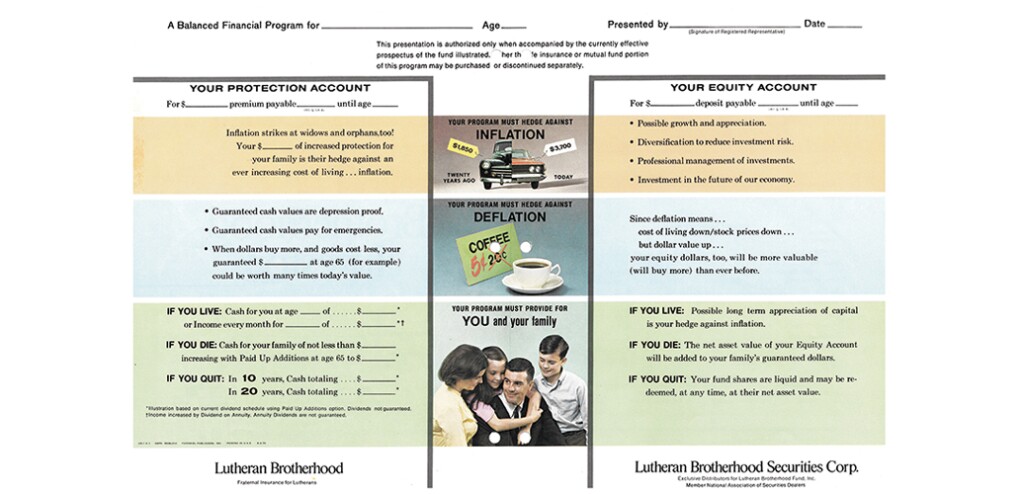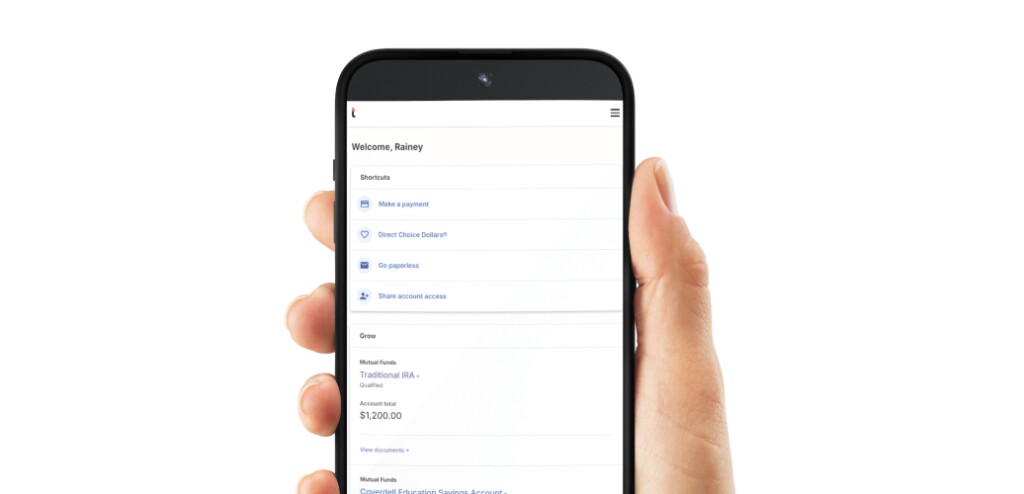But it's a delicate balance to reach your long-term savings goals while also preserving what you've built, and selling mutual funds and other investments at the wrong time can disrupt it.
Let's look more closely at what to consider before you sell them.
Key factors to consider before selling mutual funds
While liquidating mutual fund shares may come to your aid in certain circumstances, it ultimately may not be in your best interest to sell—especially considering the long-term growth potential. But not all factors are equal, and there are reasons you may or may not want to offload your mutual funds.
When you might hold off & not sell
- Your emotions are steering the wheel. It can be tempting to let financial anxiety propel your decisions. It's important to reflect on what's driving you. If emotions are the first answer, you may want to ask your financial advisor for a more neutral opinion.
- The market is volatile. This may feel like exactly the time to sell, but keep in mind that the
market naturally ebbs and flows. Studies have shown that it is nearly impossible to successfully time the market. Many mutual fund investors benefit from waiting out market fluctuations with a buy-and-hold strategy. It may be worth it to stick to your long-term financial goals and resist the urge to sell.
- The sales charges outweigh the benefits. Different share classes of mutual funds have different "loads" or sales charges and fees. Depending on what it costs to sell your type of shares, as well as the costs incurred when you originally purchased them, it may be best to hang on to them until the time is right.
- You'd face ill-timed tax implications. If your mutual fund isn't in a tax-advantaged account, such as an IRA or 401(k), you may trigger a
capital gains tax if you sell at a price higher than when you bought it. If you're not prepared for this expense, you may want to wait.
When you might go ahead & sell
- You want to rebalance your portfolio.
Rebalancing involves trying to get back to your original target allocations by selling certain assets that have overperformed and buying other assets that have underperformed.
- Your objectives have changed. If your financial goals have shifted, it may be time to realign by selling. For example, if you initially invested in an aggressive growth fund but now require more stability and income, you might consider selling the fund shares and reallocating your investments.
- The mutual fund style drifted. Sometimes a mutual fund's holdings deviate from its stated investment style or objective, such as when a mid-cap fund morphs into a large-cap fund. This could be a reason to sell.
- Your funds are overlapping. If you have multiple mutual funds with holdings skewed toward a particular sector or asset class, selling the funds that are too similar may
improve your diversification.
- You're facing unforeseen financial events. You may need immediate cash for unexpected expenses or to fulfill other financial obligations. In these cases, and considering what else is available in your wider financial picture, selling mutual fund shares may be a sound option.
What to know about selling mutual funds by share class
Mutual funds typically offer different share classes to accommodate a variety of investors. Each class has its own fee structure, sales charges and expense ratios. Timing your mutual fund selling based on share class can depend on several factors, including the terms and conditions of the share class and your individual investment goals.
Here are some common share classes and when you might consider selling them:
Class A shares
Class A shares often have a front-end sales charge or load that investors pay upon purchase. The load is a percentage of the investment amount, which can vary depending on the fund and the investment size. Class A shares generally offer lower annual expenses compared to other share classes.
- When to sell: Since the sales charge for Class A shares is deducted upfront from the investment amount, the best time to sell shares might be after you have held them for a sufficient period to minimize the short-term impact of the sales charge.
Class B shares
Class B shares don't have a front-end sales charge but may have a contingent deferred sales charge that you pay when you sell, if the shares are sold within a specific holding period—usually ranging from five to seven years.
- When to sell: The contingent deferred sales charge for selling Class B shares gradually decreases over time. The best time to sell—so that you don't have to pay the charge—would be after the holding period.
Class C shares
Class C shares generally don't have a front-end sales charge, but they may have a contingent deferred sales charge if the shares are sold within one to three years.
- When to sell: Class C shares typically have at least a 1% charge if they're sold within the specified period. You'll want to review the terms of your shares and consider selling only after the holding period is over.
Class S shares
Class S shares are usually a no-load fund with a higher minimum initial investment and may carry an annual servicing fee. This means that while there typically aren't sales charges, the steep requirements can make this share class inaccessible for some investors.
- When to sell: Without sales charges, Class S shares are flexible when it comes to selling. Your decision to sell or not comes down to your investment strategy, your objectives and market conditions.
Should I sell my mutual funds?
If you're facing a need for cash, you might turn first to your
In either case, you'll want to evaluate your circumstances before making the leap. A solid investment strategy should take into account your long-term goals, risk tolerance and evolving market conditions. If you decide to sell, make sure you know the potential tax implications, fees and transaction costs. Consider talking with







